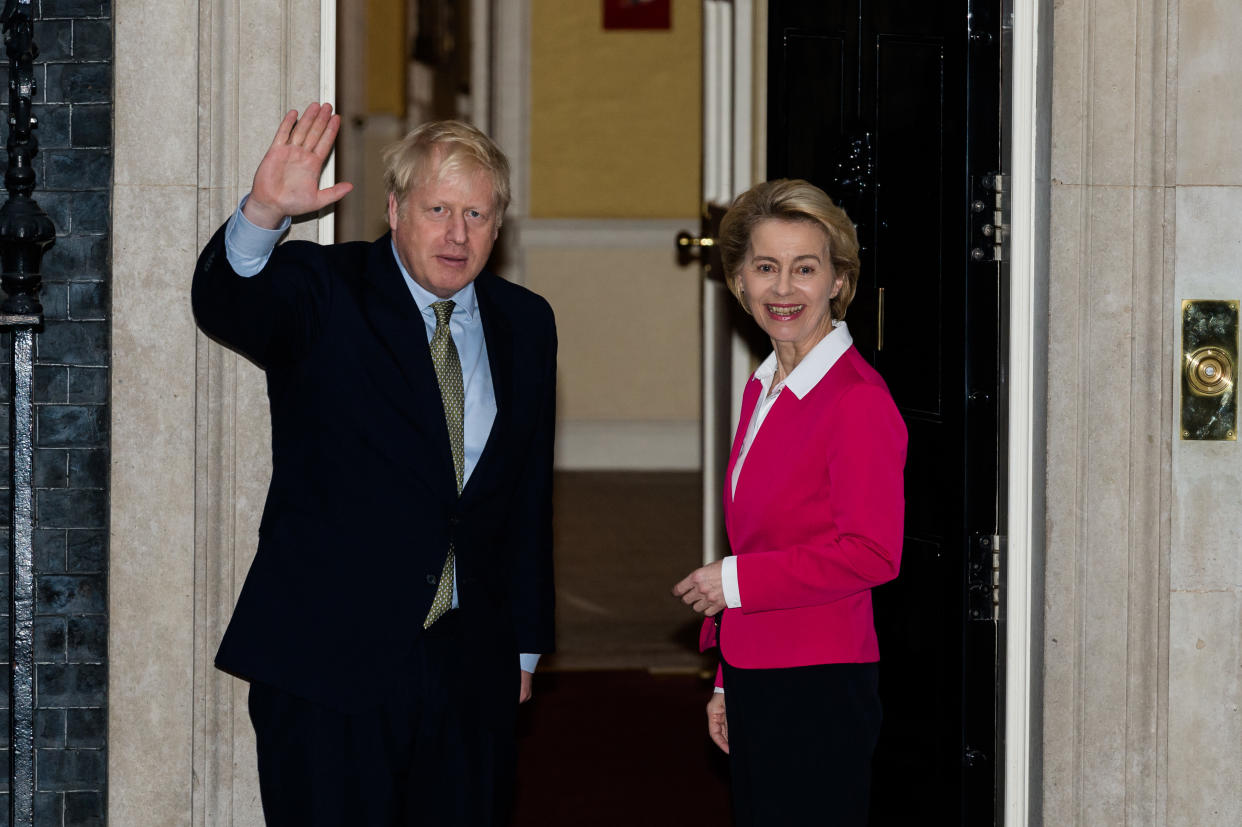How will the UK's relationship with the EU change during the Brexit transition period?

Boris Johnson hailed the signing of his Brexit Withdrawal Agreement as “heralding a new chapter in our nation’s history”.
He is correct - though you probably won’t notice much change at first.
Once Britain leaves at 11pm on Friday, it will enter into a “transition period” in which the government will negotiate its future relationship with the EU.
However, during these 11 months up to December 31, much will stay the same as when the UK was a member of the EU.
Today I have signed the Withdrawal Agreement for the UK to leave the EU on January 31st, honouring the democratic mandate of the British people.
This signature heralds a new chapter in our nation’s history. pic.twitter.com/IaGTeeL2is— Boris Johnson (@BorisJohnson) January 24, 2020
This, as the “transition period” name suggests, is to avoid too much change happening at once before the UK’s future terms with the bloc have been thrashed out.
Here are the five key aspects of the relationship that will remain the same during the transition period:
1) Freedom of movement
This is one of the fundamental features of EU membership and means EU citizens will still be able to live in the UK for work purposes, and vice versa for UK citizens in the EU.
2) Subject to EU law and rulings by European Court of Justice
The UK government, when proposing new laws, will still have to work within parameters set by the European Court of Justice. It means UK law incompatible with European law will not be able to pass.
3) Contributions to EU budget
With the UK still effectively an EU member, it will still have to contribute to its budget. It’s not known how much this will be.
4) Membership of single market and customs union
Similar to the principle of freedom of movement, only for businesses. It means the UK will still be able to freely trade with the EU, with tariffs and duties taken off goods.
5) Security co-operation
The Institute for Government says: “Security cooperation will continue during the transition period. The UK will continue to have access to EU mechanisms, like Europol [the EU’s law enforcement agency that fights terrorism, cyber crime and organised crime].”
So, will anything change?
There is one key change, and it’s very simple: the UK will no longer have voting rights in EU business, with no MEPs in the European Parliament.
In effect, as Simon Usherwood of the University of Surrey points out, the transition period “recreates almost all the features of membership, minus the representation and voting rights the UK previously had.
“As a result, most people will not see any real change in their interaction with the European Union.”

 Yahoo News
Yahoo News 
